Last Updated on December 20, 2025 by Emma Fajcz | Published: September 6, 2019
In a culture that revolves around food, the French have perfected the arts of cooking and dining as well. But as a country also deeply in love with rules, there’s a lot of unwritten rules for eating well at any Parisian cafe or brasserie. We’ve broken them down to the 6 basic rules you should be following to eat like a local in Paris–regardless of whether you’re visiting France for the first time or have lived here for years.
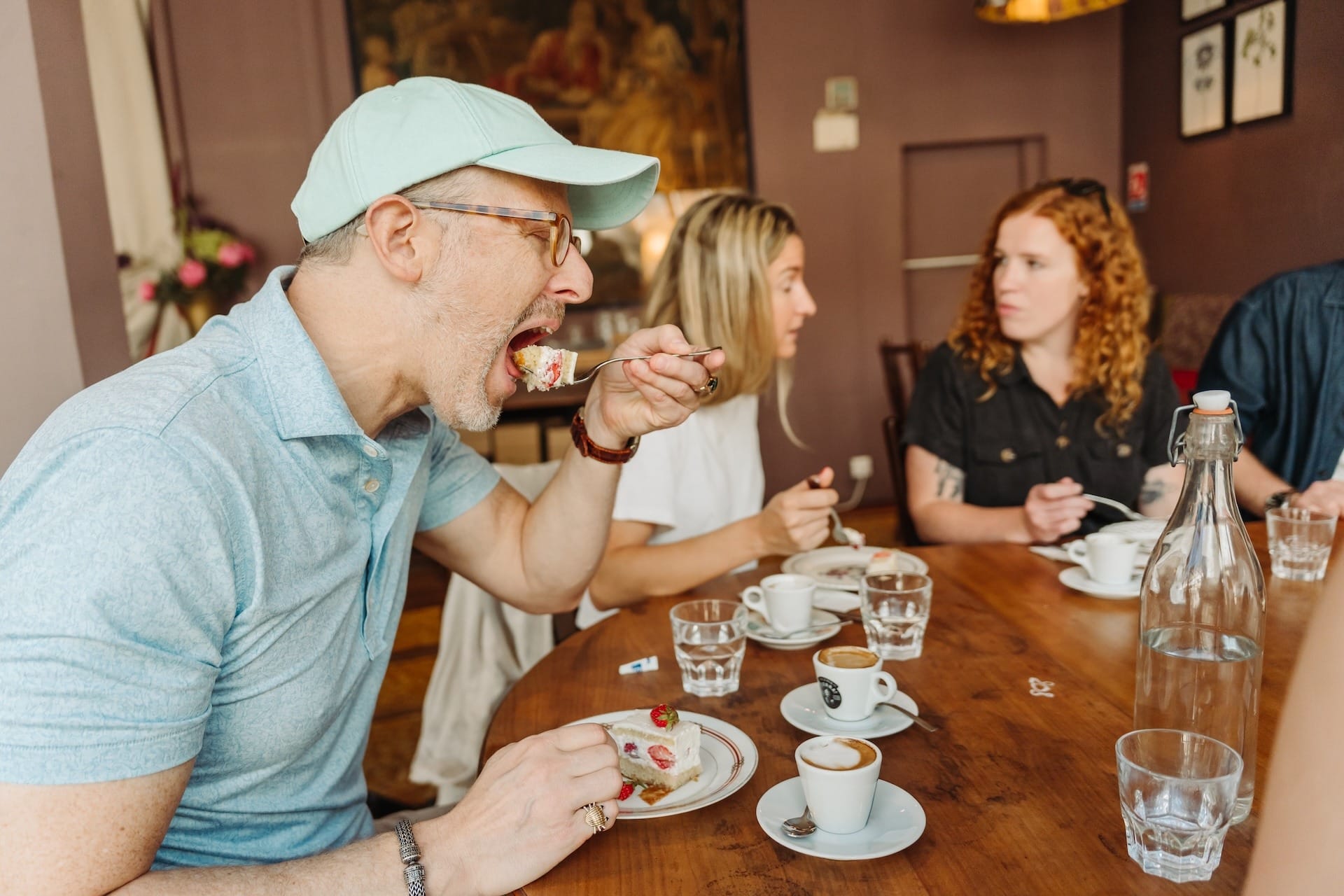
Want more tips for ordering a meal, tipping, and more? Check out our guide to navigating a meal in France.
Eat at the Right Hours
Before even thinking about dining in Paris, you’ll want to make sure that you’re going at the “correct” time.
- Breakfast is served anytime before 12 pm.
- Lunch in Paris operates on by far the strictest schedule: from 12–2 pm. It’s outlandish to think that anybody in France would serve anything but breakfast before noon, so don’t bother asking for a full meal at 11:15 a.m.!
- Late lunch or afternoon snacks? Once it’s past 2 pm, odds are high that you’ll be told that the kitchen is closed. (Keep reading to see how the French snack in the afternoon!)
- For dinner, we’re a bit more flexible. We don’t eat as late as our Spanish neighbors by any means, but most people won’t sit down to dinner before 8 p.m., and in most places, looking for a full dinner after 10:30 p.m. can get complicated, as well.
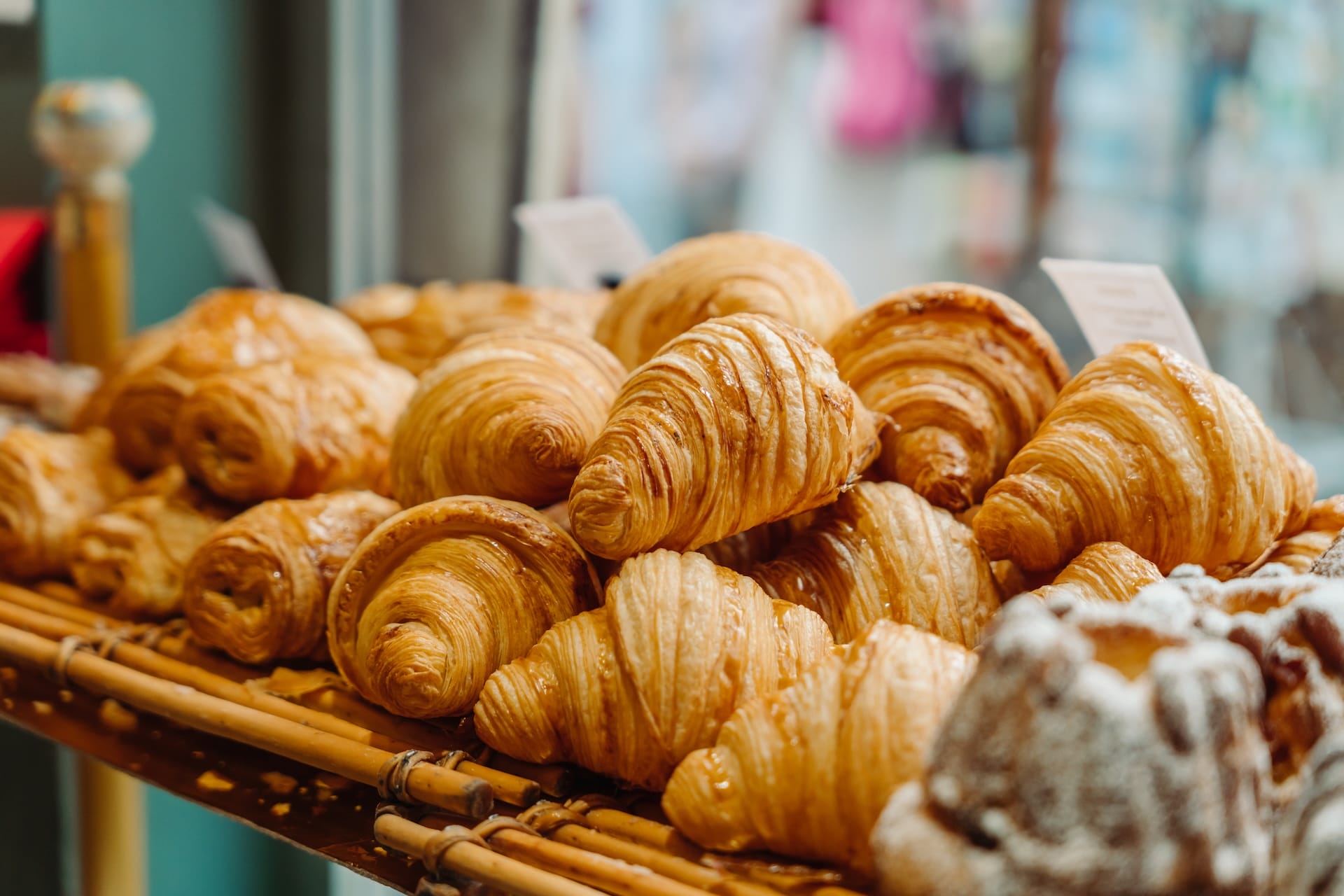
Snack Like a Local
To keep your belly full during those extraneous hours, we’ve invented some other acceptable ways to “picoler,” or snack, in France.
- The gouter is the French equivalent of a midday snack.
- An apéro is the early evening bite, usually accompanied with beer or wine, and shared with friends. The apéro is often hosted at someone’s home, but can also take place in public spaces, like along the banks of the Seine or in one of Paris’ many parks.
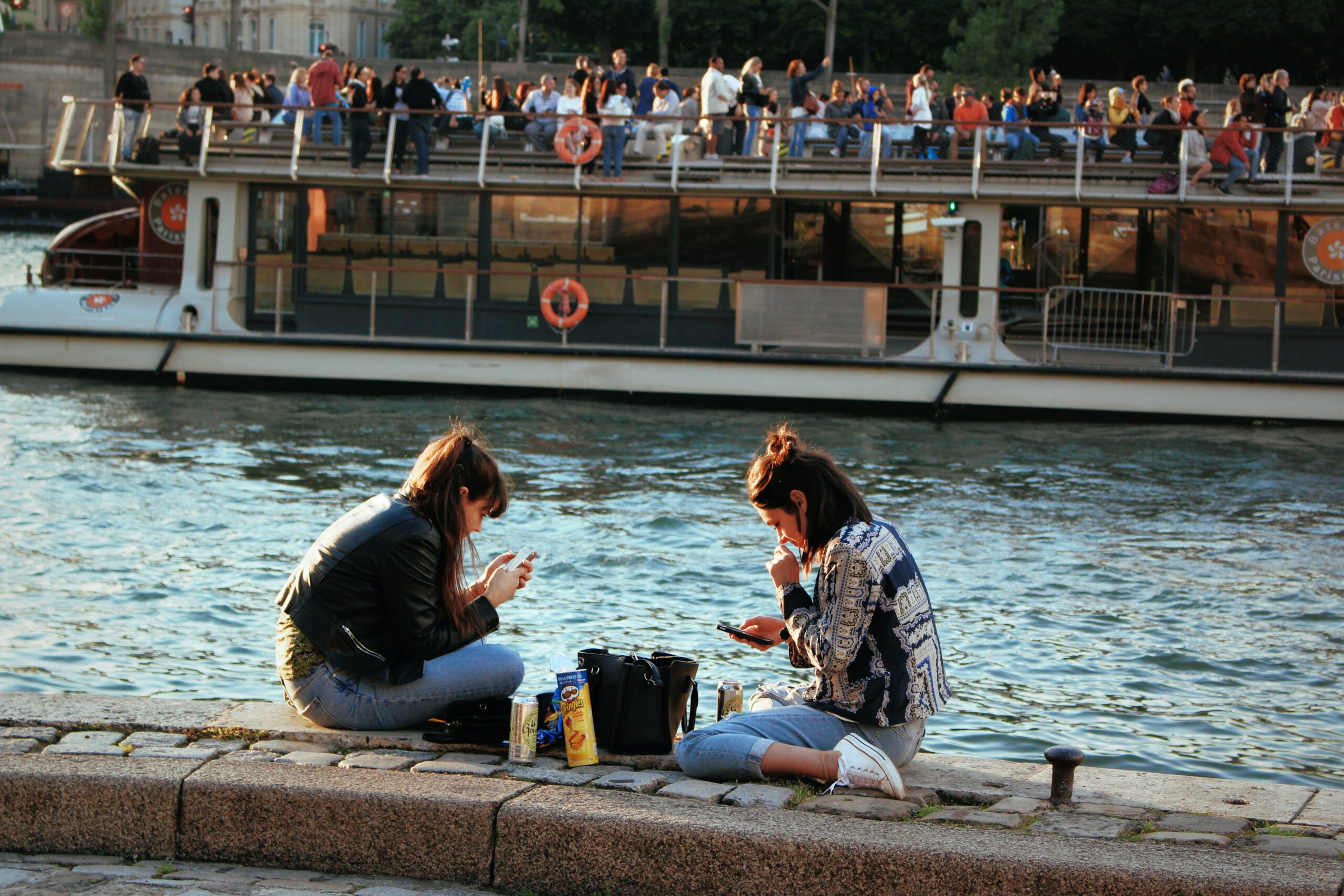
Look for Table Settings
In Paris, there’s a place for everything. This is just as true in cafes, bistrots, and brasseries as it is in other facets of French life.
For example, most cafes will have a smoking and a non-smoking area. They will also generally set aside some tables for dining, and others for drinking. The key indicator of difference? A white tablecloth or table settings of some kind indicates that you can eat there.
If you sit down at lunchtime at a table with no settings, and then order a meal, you might be asked to move to a spot designated for eating. Alternatively, the waiter might begrudgingly set the table for you—but that’s not exactly how you want to start your meal.
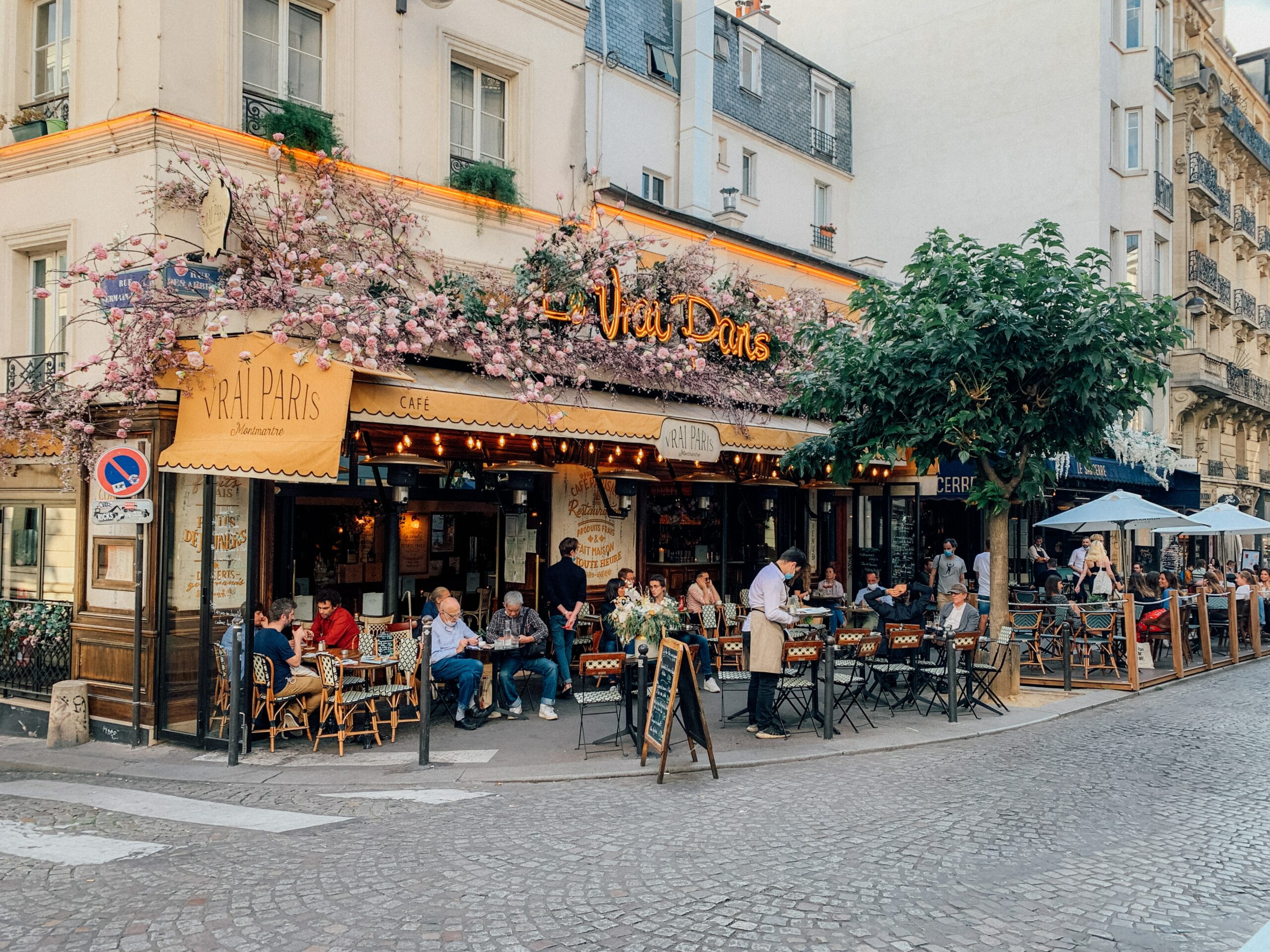
Get the Set Menu
Unlike in other countries where mixing and matching menu options is common when eating out, in France the best deals will almost always be found on the prix fixe menu.
This set menu, most commonly found during lunchtime on work days, typically changes each day while the price stays the same. Even in slightly more upscale spots, you should be able to get at least a two- or three-course meal for under €25.
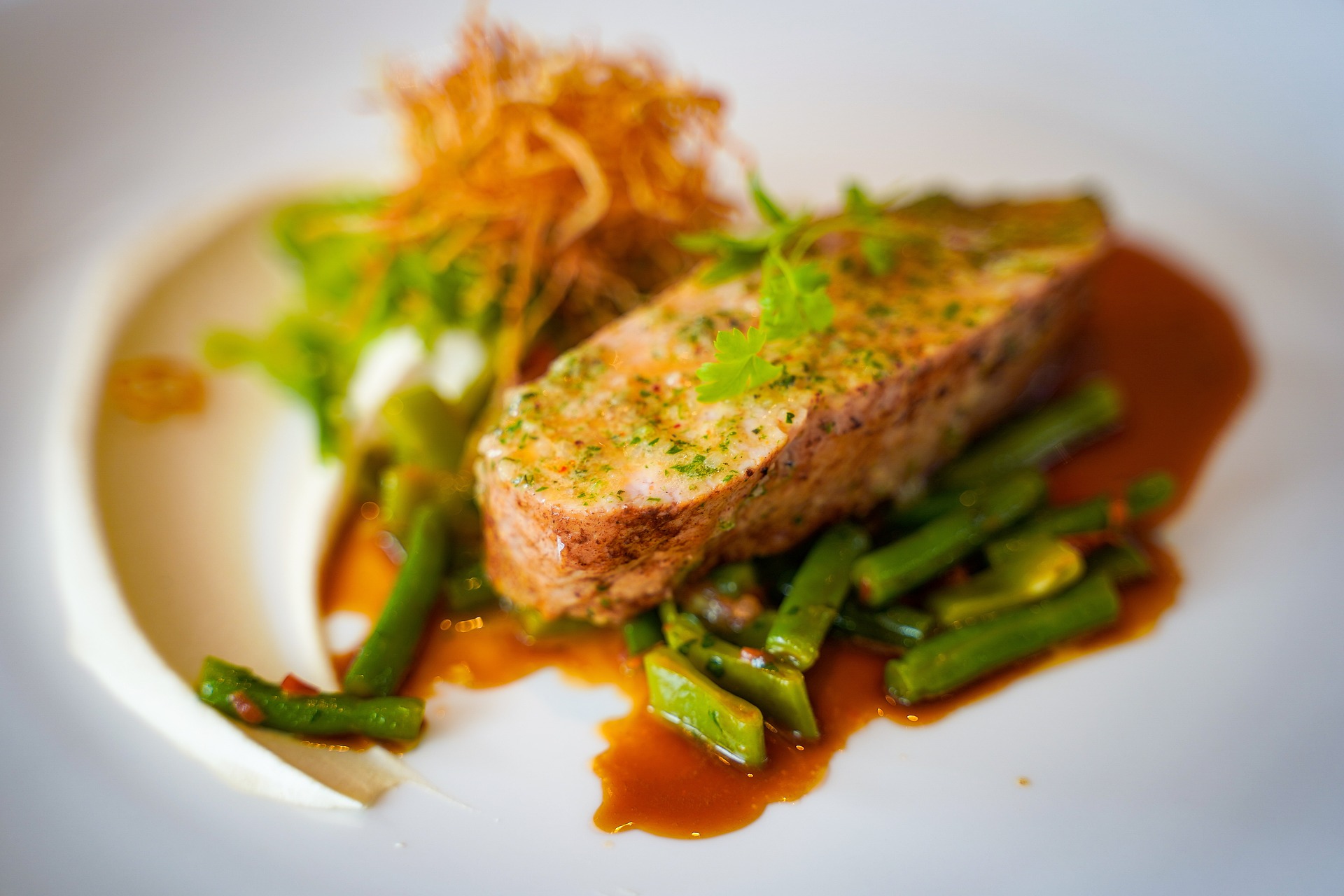
Understand the Order of Operations
This might seem obvious, but if you want to truly appreciate a French meal, it’s important to consume it in the right order. Beyond the typical entrée-plat-dessert combination, you can also add in a cheese plate, an alcoholic digestif, and an espresso to top it off. (Our suggestion: always, always, always go for the cheese plate.)
If you really want to eat like a local in Paris, throughout the meal don’t be shy to ask for more bread to sop up the glorious juices and sauces. And don’t worry—you won’t be charged extra for it!
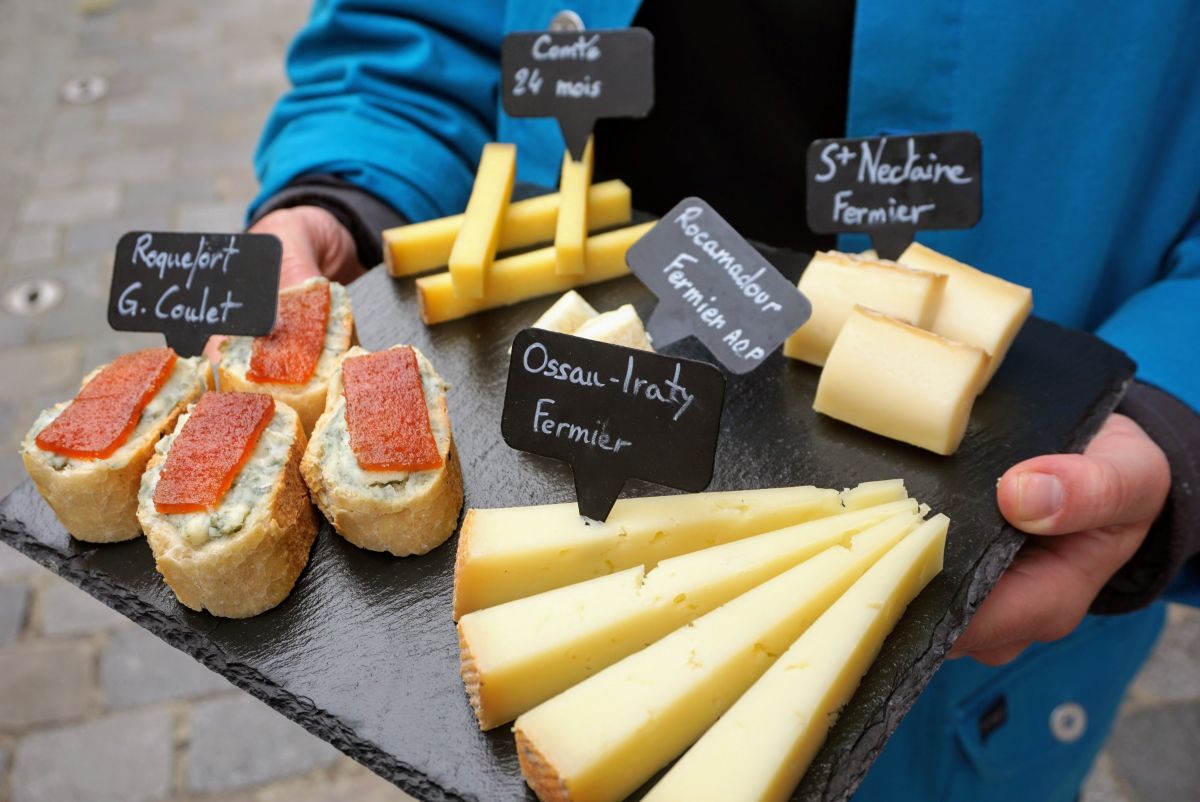
Take Your Time!
If there’s one rule that you remember from this list, it’s this: take your time. Whole book chapters, and indeed entire books about the art of French eating, have been written about this.
Here in France, a meal is made up of food and conversation, with each playing an equal role in the pleasure of it. That’s why most French towns, and even to a certain extent Paris, close down between noon and 2 pm (rule #1).
Even in Paris, which is unlike the rest of France in myriad other ways, the on-the-go meal snarfed down at one’s desk while continuing to work is rare. Indeed, this element of French culture—the slow, deliberate meal—is still alive and well in the capital.
You only live once—and in Paris, much of that life is spent around a table with friends and delicious food. Life is short—savor every moment and every bite!
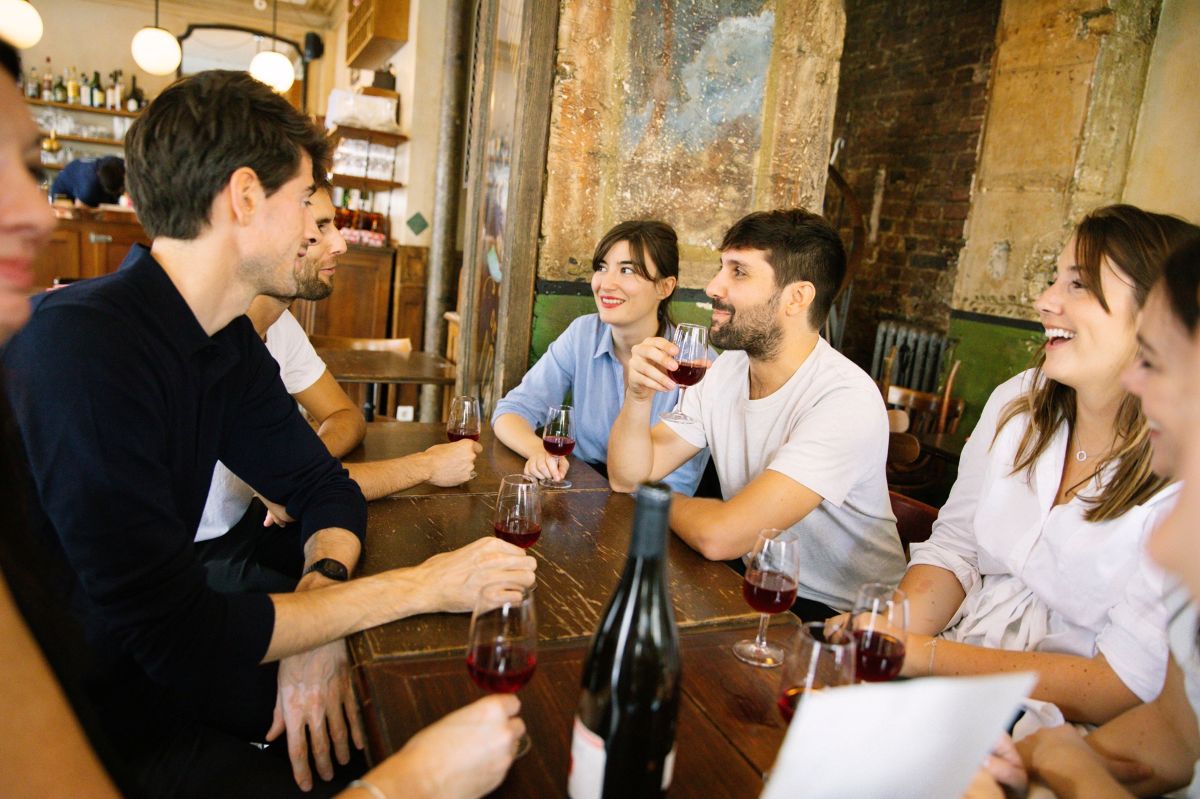
Practice Eating Like a Local in Paris
A great way to do that? Join us on our Paris Ultimate Food Tour for a crash course in food shopping and dining out Parisian style. After a morning discovering the city’s most delicious bites, you’ll leave armed with knowledge about how to make the most of every meal throughout the rest of your trip.
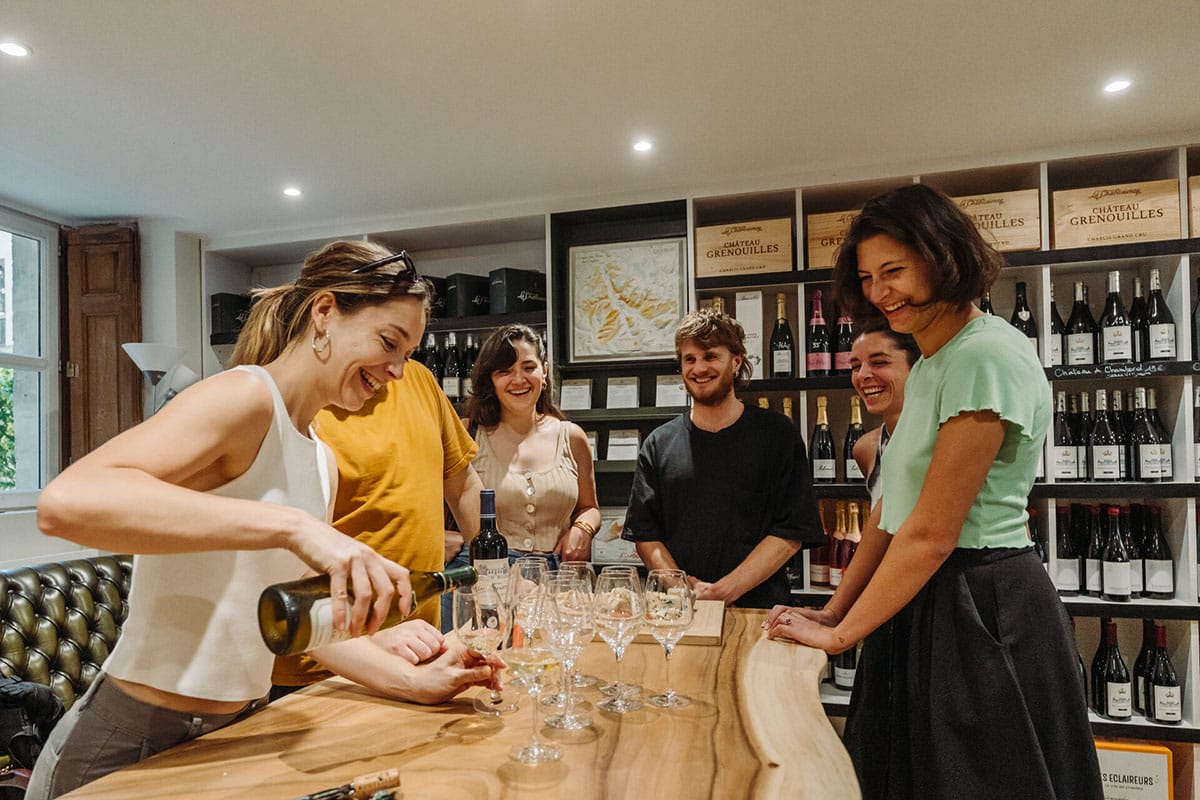
Featured Review: Paris Ultimate Food Tour
⭐⭐⭐⭐⭐ “Vanessa was an excellent tour guide, she was very well familiar with Paris and French History and artwork, and knew what she was talking about describing the food we tasted and charming local businesses we visited. She also made sure we felt included as individuals and as group mates. Her guidance deserves high praises and we definitely started recommending this tour all around.”
– Lika on GetYourGuide
Rules for Eating in Paris FAQs
What is the food etiquette in Paris?
Parisian food etiquette emphasizes enjoying meals at a relaxed pace. Use basic French dining terms with your server if possible. Bread is placed directly on the table (never on your plate), and it’s polite to use your knife and fork through the entire meal. Meals are social, so take your time! Parisians consider lingering over good food part of the pleasure of a meal.
What is impolite to do in France while eating?
There are a few common faux pas to avoid in France. Avoid placing your hands completely on your lap; Parisians prefer to keep their wrists resting on the table. It’s also considered impolite to ask for substitutions or major changes to a dish; chefs take pride in their carefully composed plates. Talking loudly, checking your phone at the table, or gesturing with your fork or knife are also seen as poor manners.
What is the dress code for dinner in Paris?
Parisian dinner culture tends to lean toward smart casual or elegant attire, even at casual bistros. Locals typically wear well-fitted clothing, and you’ll see stylish layers, scarves, tailored jackets, and polished shoes. For finer restaurants or cocktail bars, a dressier outfit (such as a dress or button-down shirt and tailored pants) is recommended. Avoid athletic or casual attire when dining in restaurant neighborhoods like Saint-Germain, Le Marais, or the 7th arrondissement to blend in with Paris’s chic dining scene.








